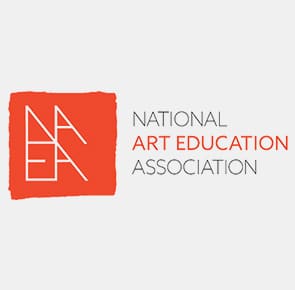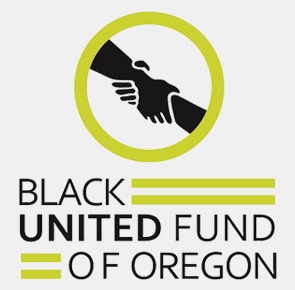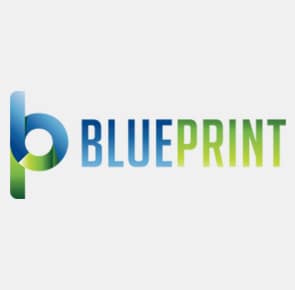University Headquarters (HQ) is an industry-leading, independent educational organization that provides independent college rankings using a proprietary formula to create first class unbiased rankings. The team at University HQ strives to provide accurate and trustworthy rankings that highlights the best online programs for liberal arts.
Get Matched With Liberal Arts Programs
By design, liberal arts is a broad term that covers many fields taught on campuses or through an online learning environment or online learning platform. From teaching to operating a non-government organization or non-profit, to political science or working as an editor or technical writer, modern liberal arts graduates can almost write their own career paths since a balanced liberal arts curriculum can lead to a huge variety of liberal arts careers.
The list of career options is made even longer as a liberal arts student can select any degree level (associates, bachelor’s, master’s, and doctoral in any field, as well as the option to choose an interdisciplinary liberal arts degree) and liberal arts graduates can find a wide range of jobs that suit their interests and knowledge in industries such as criminal justice, social services or social sciences, some natural sciences, online or cloud services, business, ministry, policy analysis, theology or religious studies, public service, social sciences, legislative work, political science or politics, lobbying professions, college recruiting, creative arts or fine arts, art history, public relations, human resources, and even grant writing or creative writing. It all depends on the person’s educational and professional focus. All you need to get started is a high school diploma and to find a college that offers an in-person or online liberal arts degree or online completion program that interests you and serves your career goals. A bachelor's in liberal arts is the most commonly earned degree in this field and the most likely to lead liberal arts students to a successful career.
Read MoreDepending on the level of the online liberal arts education you earn, you should be able to find work in your desired field. If you want to work with people who need assistance regaining their lives and finding jobs and homes again, then you could work in a non-profit, a social services agency, or in a psychology practice after studying social sciences in an online program or in the classroom.
The liberal arts curriculum and majors that students choose and their soft skills (such as critical thinking) can help liberal arts students focus on and pursue the right career options for them. If you have a love of writing and research, then technical writing, English, journalism media, or a history major could help you get into your chosen career editing or writing for an online journal. If you are interested in being at the center of government and you have excellent writing skills and communication skills, then you may go into speechwriting; or, if you're good at public speaking, decision making, and critical thinking skills, you may work as a legislative assistant, lobbyist, or as a politician. The best online liberal arts program for you is the one that will let you achieve your career goals. You may also want to keep your eyes open for one that offers transition support during your school search if you've already completed an associate degree or started a bachelor's in liberal arts.
If you have the ability to think deeply about issues, you want to help broaden the knowledge of society, and you're good at problem-solving, then think about earning an advanced degree in sociology or psychology. If the law is your passion, then a liberal arts degree in one of a wide variety of subjects could be your ticket into law school including political science, communication, or social sciences. The number of online bachelor's degree programs available from online liberal arts schools in the U.S. is incredibly high, and earning your bachelor's in liberal arts degree online means that you can attend from anywhere in the country.
Compare Popular Online Liberal Arts Programs
How to Earn an Online Degree in Liberal Arts
It's important to know what employers need and expect from an employee who holds a liberal arts degree. They need adaptable employees who can bring innovation and critical thinking into their daily work rather than only technical skills. You should be curious, creative, and act as a problem solver. If college students in liberal arts programs are cross-culturally competent and have excellent communication skills, that’s even more of a strength for you. Even online learning might add to these skills, as it will teach you to work with other people over a distance or through an online format as you earn your online liberal arts degree, a skill that is becoming more important every day.
You should be able to think critically, be emotionally intelligent and mature, willing to learn new things and, most of all, you should understand people.
Find Your Online Liberal Arts Program
In most types of industry today, in an electronic age of iPads, computers, and smartphones, you may also need to be skilled in creating and curating digital/online content and data as you help your employer express their ideas and create natural connections with their customers.
Typical Requirements
An on-campus or online degree will take a similar number of credits to any other degree at the same level. This means you can expect to take about 100-120 credit hours over the course of 4 years to earn an online liberal arts degree at the bachelor's level, even 100% online students will have to meet this criteria. You’ll need to have taken the SAT or ACT to get into most liberal arts degree programs, as will most college students. Luckily, attending online liberal arts degrees does not keep online students from obtaining financial aid. A liberal arts student earning an online education will have all the same opportunities as any other student attending from their home state, no matter where they attend, including financial aid options.
Then, you’ll declare your major. Requirements may differ from university to university, but you might be required to complete your general education credits before declaring any major, whether in liberal arts programs or engineering.
Typical Certifications Needed
Liberal arts graduates working as early childhood educators with an AAS will have to obtain state certification that allows them to work in the field. If you have an Associate of Arts (AA), then you’ll need to continue on to a four-year college and earn your degree in childhood education, elementary education, or childhood special education. If your interest lies in working with teens, you’ll have to transfer to a four-year university and earn your secondary education degree, specializing in mathematics, biology, english, or whatever you choose to teach.
For a Master of Arts (dual certification) in early childhood education and bilingual education, you need to apply to your state’s certification board for dual certifications, one in ECE and the second in bilingual education.
All of these are for a liberal arts graduate who plans to go into education. Many liberal arts degrees have no necessary certifications, like writing. Though if you want to write grants, it will be helpful to take a few classes in the subject that provide proof of completion so that you have something to point to in order to prove your experience. This will help you break into the non-profit industry more quickly. And, if you want to edit for online publications, gaining experience through online gig platforms or with volunteer work might help you break into the field.
Academic Standards
If you plan to go into any liberal arts-related field, you’ll have to earn your degree. You’ll be required to pass your classes with the GPA that your university requires. Students who fall below a certain standard are often put on probation or even removed from the program, even if they attend online. This is often a 2.5 or 2.75 GPA on a four-point scale.
Exams and Experience Needed

If you choose to enroll into a liberal arts college certificate program, then once you graduate, you will receive your certificate of completion. This will allow you to find work in your field, doing the work you love.
Whether you study hard or soft sciences, the humanities, the arts, languages, public relations, social sciences, healthcare education professions, environmental or natural sciences, religion or religious studies (theology), mathematics, criminal justice, computers, political science, or writing, you will be ready to get into the job market full-time once you have completed any required training your future employment requires. You’ll be able to use your experiences that you gained before you graduated and gain new experience afterwards that will help you to broaden your world outlook as you begin working in your new profession, along with having many opportunities to gain experience in soft skills you didn't hone in school.
Popular Liberal Arts and Humanities Concentrations
There are many liberal arts and humanities concentrations available to students looking to specialize. You can learn more about each of these concentrations below:
Associate Degree in Liberal Arts Online
At the associate degree level, you’ll be able to earn an on-campus or online degree that takes you into one of several professional fields, such as the arts, humanities, communication, science, English, elementary education, and more. You may also find a profession in business, advertising, health administration, human resources, education, politics, government, writing, or editing. If you choose a major in social and behavioral science, you’ll be able to work in one of the above fields.
SOME EXAMPLE ONLINE COURSES:
- Foundation of Education
- Philosophy
- Astronomy
Bachelor’s Degree in Liberal Arts Online
Earning online liberal arts degrees could lead graduates into careers as professional writers, as well. There are many options and you'll get the benefit of a grounding in professional education, liberal arts, and rhetorical studies. Once you graduate, you will have the needed educational background for a career as a communications specialist or writer. You could also go into government, publishing, law, journalism, community advocacy, education, a non-profit agency, finance, corporate communication, or the arts. Your classes will help to hone you into an articulate, reflective professional, who is able to write for a print publication or for an online company.
SOME EXAMPLE ONLINE COURSES:
- Environmental Rhetoric
- Literacy: Educational Theory and Community Practice
- Language and Culture
Master’s Degree in Liberal Arts Online
Earning an M.A. in Linguistics, you’ll be able to work in the U.S. or in another country. Expect to work as an anthropologist, audiologist, pathologist, in marketing, or as a translator. Taking linguistics classes, you will learn how to develop strong analytical and critical thinking skills. With your degree, you can work to interpret statutes and contracts, evaluate voice-print evidence, work in the neurosciences, studying dyslexia and aphasia, or develop a career in the hearing sciences. You may also work in a psychological or philosophical field. You may even be interested in teaching English as a second language (TESL) to foreign students. This is one field where you may not be able to complete an entire program online. Online components will make it more difficult for a teacher to gauge whether or not you are learning the subject.
SOME EXAMPLE ONLINE COURSES:
- Introduction to General Linguistics
- Grammar for TESOL
- Language and Gender
Earning Potential and Career Salaries for Liberal Arts Major Graduates
Students everywhere may question themselves about whether earning an online master’s degree is the right thing for them or not. It’s all individual. With an online master's, your earnings could increase in comparison to a high school graduate’s salary or a graduate with an online bachelor’s degree, though they may also increase with an online certificate. It's up to you to decide if it is worth the time and effort to earn an online master's, though most of these programs are offered through online, evening, or weekend courses.
Find Online Liberal Arts Schools
As a graduate of an online master’s program in liberal arts, your employer may pay a wage premium to you, just because you hold that degree. That is how valuable the degree can be.
As the recipient of a liberal arts degree, you’ll be able to enter a wide range of careers; early childhood education, government, policy, public relations, urban planning, or legislative assistant.
| Occupations | Entry-Level Salary | Mid-Career Salary | Late-Career Salary |
|---|---|---|---|
| Editor | $39,100 | $55,800 | $64,300 |
| Journalist | $30,900 | $44,400 | $57,900 |
| Technical Writer | $49,300 | $65,300 | $73,500 |
| Executive Assistant | $43,500 | $56,600 | $62,400 |
| Linguist | $56,700 | $77,900 | $117,900 |
Important Questions to Ask (FAQ)
How Long Does It Take to Earn an Online Liberal Arts Degree?
First, you’re going to have to take a set number of credits at minimum each quarter or semester. If you have chosen a major in liberal arts without any concentration, you’ll likely be able to complete your courses and earn your degree sooner.
Even better, some universities allow you to earn academic credit for several forms of applied education and real-world experiences, including job-related courses in a wide variety of subjects and military training.
Some universities require their liberal arts majors to earn at least 120 semester hours for a BA in Liberal Arts. Usually around 90 of those credits are required to come from the arts and sciences fields; and 30 can be earned in applied professional classes, extra arts and sciences classes, or some combination of both.
For those students who want to earn a BS in Liberal arts, they too must earn at least 120 semester hours to graduate, similar to all bachelor's degrees. Around 60 of those hours will come from the arts and sciences. And, of those 60 hours, at least 21 hours will likely need to be earned in upper-level classes. These may be earned either in additional arts and sciences courses, applied professional courses, or a combination of each. Many of these classes can be taken online, though, of course, online offerings depend heavily on what school you attend and what they have available for on-campus or online, flexible learning.
If you take at least 12 credit hours per semester, you’ll earn your degree in five years; if you take 15 credit hours per semester, you’ll graduate in closer to four years.
Note that these requirements are from a specific school that offers liberal arts education and that another university might require that you select a subject that is more focused on key courses or may even offer you a broader definition of a liberal arts degree.
How Much Does an Online Degree in Liberal Arts Cost?

At one New England college, the estimated costs of an undergraduate degree are:
In-state: $10,075; New York and New England Board of Higher Education (NEBHE): $10,589; Out-of-state and international: $19,020.
NEBHE-classified students receive an 85% reduction for students from New York State. This saves them about $8,400 per year, for every major.
Other sources put the costs for a bachelor’s degree anywhere between $12,000-$47,000. It varies based on in-state vs out-of-state tuition, region, population density, public vs. private, and other factors. This is why it’s important to work out the cost for any school you are considering, as they may charge different amounts, even if they are in the same town. Aditionally, if you attend a liberal arts college full-time, you are more likely to graduate within the normal timeframe, while those who attend only part-time may take longer.
Does the Online School Have the Liberal Arts Major(s) You’re Considering?
As you begin exploring colleges and universities, you may already know what you want to major in. If you have a major in liberal arts in mind, look through the undergraduate catalog, either online or a copy of the book and browse the majors offered by that college. If you find this major, this will be one school you’ll want to consider attending; if not, then cross the school from your list and move on to the next.
If you’re uncertain what degree you’re interested in, try to find a school with a wide range of courses or subjects available; this will let you experience a few varied lower level classes and allow you to figure out what liberal arts majors you might enjoy while you work through your general education.
How Many Students Graduate “On Time,” in Four Years?

If you want to be one of the lucky 40% who do graduate in your fourth year, you may need to make a few sacrifices. First, you’ll have to take more than the minimum 12 credit hours per semester. Take 15 credits per semester, because you’ll finish earning the required credits in around four years.
Go to school each summer session. Take at least one class per summer semester. Not only will you be sure to graduate on time, but you may also benefit with lower per-credit tuition charges, as well.
Declare a degree major as soon as you can. You won’t be moving from major to major this way. If you have to work for gas or rent, work for the fewest number of hours per week that you can. Your studies are vital.
What Kind of Accreditation Does the Online Program Hold? How is it Regarded in the Field?
Universities should hold institutional accreditation. This comes from the Higher Learning Commission, or from a regional accrediting commission, which oversees universities and colleges in a particular region of the country.
Liberal arts college and programs are accredited by the American Academy for Liberal Education. AALE is highly regarded in the accreditation field. With its strong commitment to education in the liberal arts, AALE ensures that colleges and universities offering liberal arts programs are staffed with the highest quality faculty.
Software, Technology & Skills Needed
Before you enter a liberal arts program at any level, you need to know what strengths you have. For instance, you may have shown exceptional leadership in a high school or job assignment; or you may have developed good problem-solving skills. You may be learning how to use analytical or quantitative reasoning skills in your science and math assignments. You may have the opportunity to develop your verbal and communications skills through oral presentations or even debates. Use every opportunity to hone your ability to communicate your thoughts.
You may develop top-notch computer skills. These will help you throughout your life. Researching to find the information you need helps you to become even more detail-oriented.
Search Programs Offering Liberal Arts Majors
Sharpen your organizational abilities by volunteering or agreeing to lead group projects. Finally, refine your creativity in the homework assignments and papers you do.
Develop your technology skills—people who majored in liberal arts have gone on to found companies such as Airbnb, Apple, and Puppet Labs. They also developed companies such as Starbucks and Target. They work for Hewlett-Packard, Microsoft, and IBM.
Liberal Arts Scholarships
-
University of Texas - Liberal Arts Merit Scholarships
Amount: $1,000-$2,500
Deadline: March 6Students compete for this scholarship at the beginning of the spring semester (students graduating in the upcoming spring semester are not eligible to apply for this scholarship). Like its companion Competitive Scholarship, the award amounts range from $1,000 to $2,500. Every requirement for eligibility is the same as the Competitive scholarship, with one difference: eligible students for this scholarship should hold a GPA of at least 3.70.
-
Albert J. Caplan Prize from the Academy of American Poets
Amount: Varies
Deadline: VariesThis scholarship is open to freshman, sophomore, junior, and senior university students. It was created by a gift from Albert J. Caplan and is awarded as part of the Academy of American Poets University and College Poetry Prize program. This scholarship gives honor to the poetic achievement of a student in the undergraduate class, enrolled in the College of Liberal Arts. This scholarship is not need-based.
-
Allan D. Gilmour Scholarship
Amount: Varies
Deadline: VariesThis scholarship was created by former Temple University President, Dr. David Adamany, to honor Allan Gilmour, who was the former vice chairman of the Ford Motor Company and an advocate of LGBT rights. This scholarship provides funds for students who have, themselves, acted as effective advocates for gay and lesbian causes. It is open for freshmen, sophomores, and juniors and is need-based.
Professional Organizations
- NAA
- BUFO
- BFC

NAA
National Art Education Association
NAEA is the leading professional membership devoted exclusively to visual arts educators at the elementary, middle, high school, and college levels. University students who are preparing to become art teachers can join, as can researchers and scholars. Teaching artists, supervisors, and administrators of art education establishments can also join. The student-members of the National Art Honor Society are also eligible to join this organization.

BUFO
Black United Fund of Oregon
BUFO runs a Mentor4Success program that encourages high school and young adult students to gain a higher education. Mentor4Success provides financial assistance to low-income students, first-generation students, and students of color to gain the tools they need to succeed in life and in school. Every month, BUFO hosts professionals from an Oregon community to give presentations on their careers to students who may be interested. BUFO also provides coaching to students who are going through the college admissions process, applications, scholarship applications, and other related activities.

BFC
Blueprint Foundation-Constructing Careers Black Youth Mentoring Program
Constructing Careers is a discipline-specific mentorship program that is offered by the Blueprint Foundation, using funding from the Black United Fund, the Oregon Department of Education Youth Development Council and the City of Portland’s Community Watershed Stewardship Program. Mentors teach students about various careers in trades, green building, and civil engineering as they actively learn about and take on roles in environmental stewardship. Both college student mentors and professionals of color will join with students on field trips to construction sites, wildlife areas, and green infrastructure tours.
Choosing an Accredited Online College
Beyond your major and learning who your roommate may be, you need to think about the accreditation of your chosen university and of the program housing your intended major. This is vital for every field and major; so important that, if you cannot prove that your university was accredited, you may not receive the expected job offers.
Accreditation speaks to the high quality of an institution, its programs, and its faculty. Look for institutional accreditation of the entire university and program accreditation of the program of study you plan to enter. Accreditation is a voluntary process. Once a school begins going through accreditation, it must provide proof of the quality of its academics and faculty.
Online vs. On-Campus vs. Hybrid
Online courses are, just as their name says, fully online. There’s no going out to your car in the middle of a storm to go to classes. You don’t have to get dressed or even comb your hair before class begins. Just log in to your class when you have a convenient block of time to study and work on your assignments. However, you’ll be working almost completely solo, other than forum participation, you won’t have much interaction with your professor and fellow students. If interaction is important to you, then you may prefer on-campus classes.
Hybrid courses are held partially online and partially “in-residence”, or on-campus. Individual universities will set their own residence schedules, which may vary from one class, all the way up to four classes that take place on the campus. In this format, you get the best of both worlds. The majority of your class sessions will take place online, with a few class sessions taking place on the campus. You will have face-to-face interactions during the “in-residence” class sessions, where you can get to know the other students and your professor. Your professors will let you know when the “in-residence” weekends are scheduled.
On-campus courses are the best known and most traditional format. Here, you attend classes according to a schedule that is black-and-white. You’ll be able to interact with your professor and ask questions if something confuses you. You’ll be able get to know fellow students and, if you like, socialize with them outside of class or set up extra study times. You will have to attend classes dressed appropriately, of course.
Frequently Asked Questions
Why study liberal arts?
One reason to study liberal arts is to gain an education that is broader rather than focused on one specific field. This can allow you more options either in your career or when you decide to move into a higher-level degree program. The common way of putting this is that it creates lifelong learners. It teaches you how to learn and prepares you for the future with agile skills that you can take from one career to the next.
What does a liberal arts degree entail?
Liberal arts are usually those arts that are outside of the STEM fields. Instead of focusing on mathematics or the physical sciences, the field focuses on literature, history, the social sciences (sociology and psychology), creative or fine arts, and other similar fields. This may mean that you earn a focused fine arts degree, or it could mean that you earn a broad, less focused degree so that you have any more choices upon graduation. After all, many careers only require that you have some kind of degree rather than a specific type of degree.
Will my liberal studies degree say ‘online’?
As with any other online degree, your diploma will only same what type of degree you earned. It will not have any information about how you earned the credits needed to complete the degree. The important part is that you earned your classes, not whether you did so in the presence of others or within the confines of your own room.
Does the College Have Post-Graduate Job Placement and Assistance?
When it’s time to find a job, you can turn to your Career Services and Job Placement Center on-campus. This department can help you with your resume and cover letters. They can help you know how to conduct yourself in interviews, what an illegal interview question is, how to field a salary offer, and you’ll also be able to take part in on-campus job fairs. Most campuses house career placement offices available for student and graduate use.
Why You Need to Consider How Rating and Accreditation Can Affect Your Salary
Even if you know what accreditation is, do you know how it can affect your professional future? Employers actively look for accreditation on your official transcripts. If they don’t find evidence that your university or program of study are accredited, then they will either choose not to hire you or, if they do hire you, your salary offer will be lower than you may anticipate.
The source of accreditation also matters. Nationally accredited schools are now often being lumped in with diploma mills. While some of these schools may be good, they haven’t been around long enough to provide much of a track record.
College rankings in several magazines, such as U.S. News or Forbes can also be taken seriously. Each ranking looks at several different facets of a university, either pushing it up in the rankings or down toward the bottom of the list.
Read carefully and study accreditation statistics before you make your choice.
